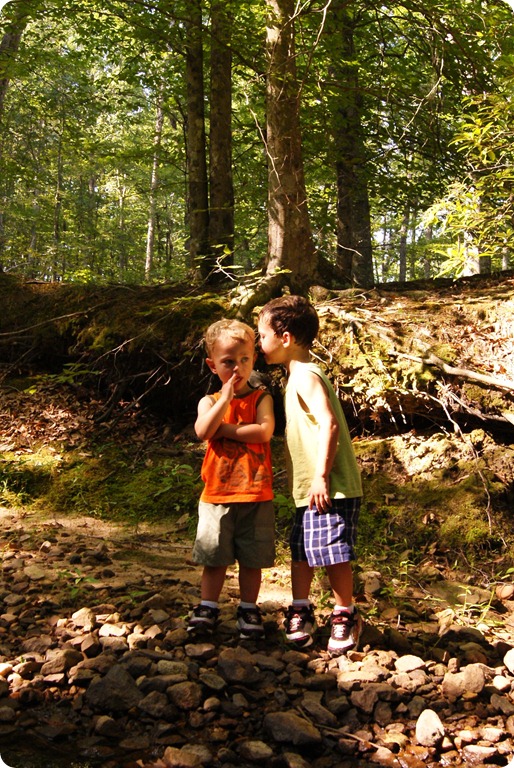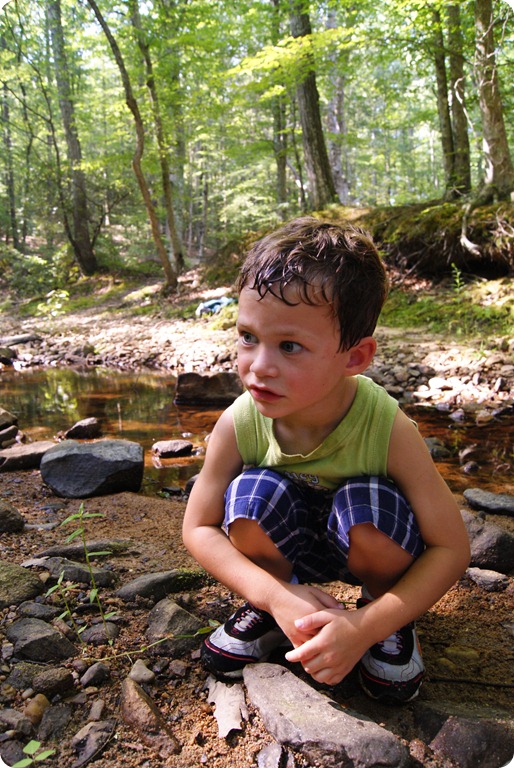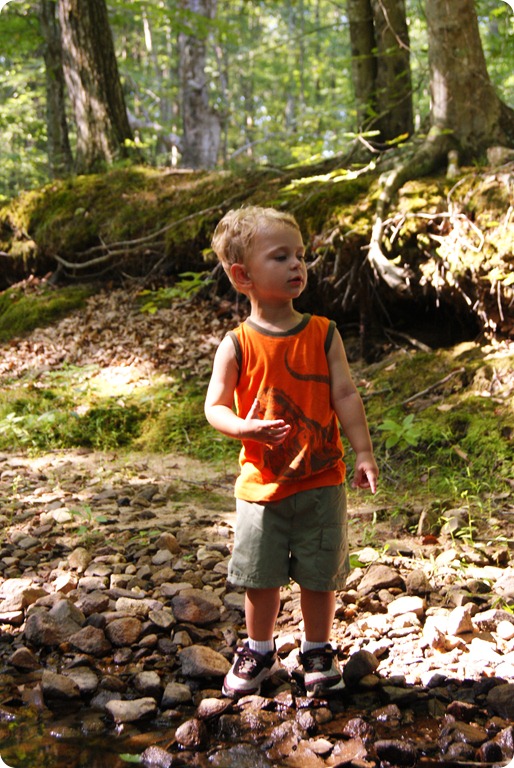|
I’ve started reading Richard Louv’s latest book, The Nature Principle. Many folks will be drawn to it once they find it's on Oprah’s Summer Reading List (Review), but after reading his last book, The Last Child in the Woods, it would have found its way onto my reading list whether Oprah liked it or not. It was in The Last Child in the Woods that Louv first presented the concept of “Nature Deficit Disorder”, which has since turned into a national movement to get today’s children to leave their worlds saturated with technology, if only for a few minutes, and spend some time outdoors. The Nature Principle goes a step further and encourages adults to do the same thing. His first book hit home with me for two reasons. One, I spent thirteen years working with kids in wilderness programs. I always felt that nature itself had no small part in the miracles friends and families claimed to witness in the kids we served. Second, as a child I spent so much of my time outside. Time that is part of some of my fondest memories and undoubtedly instrumental in shaping who I am today. One of Louv’s claims in The Last Child in the Woods is that today’s children have their imaginations limited by spending so much time inside. They have little chance to wonder about a world that stretches well beyond their latest text message or the number of friends they’ve collected on Facebook today. As a father of two boys, I’m now getting to see firsthand how nature can shape a child’s way of thinking and just how far away, sometimes quite literally, their imaginations can carry them. I was home with the boys one day last week and we decided to take a trip to a local park. Once there, they decided they wanted to take a walk down the trail in the nearby woods to “hunt for bears.” I was pretty sure we wouldn’t find any, but the way Ian gripped my hand as we walked made me at least a little more aware of the movements and sounds coming from the woods around us. The trail led us to a stream that had a little more water than usual flowing through it from recent rains. The boys found their way to a bed of rocks in the middle of the stream while I plopped myself against a tree and watched them. Over the next hour, I watched them catch baby frogs and return them to the water, in Ian’s words, to swim with their mommies and brothers. I watched Elliott throw large rocks into the deepest part of the stream and then jump back as the deep sounding thud and splash chased after him – like a shark. The hour never tired them. I had to insist that we leave for cooler surroundings or they would have stayed all day. On the way back, they said they would need to bring mama back to their secret place. And later in the week they did. See pictures below. Today we were driving to church and the skies were cloudy. The boys began to talk about thunderstorms in the back seat. The discussion turned to the dangers of lightning, and how it can kill you. Elliott asked his mom to confirm that it could indeed kill you. I think more as a scare tactic an older brother learns to use on the younger one. Katie told him that yes, if lighting hit your heart or your brain, you would probably die. But if it went through your arm and down your leg, it wouldn’t kill you. I was wondering how many times she had been struck by lighting as she gave him this account with the confidence of a survivor of a few strikes herself. After church, the skies were beyond cloudy. The rain was beginning to come down hard, so I made a dash for the car to drive it back and pick the rest of the family up in front of the church. I had barely taken my first few steps when I saw a streak of lighting fire out of the sky in front of me. I could only think: Please hit my arm. Please hit my arm. As we were driving home in the rain, Elliott asked why God put us on earth and not on Mars where they don’t have thunderstorms. I have no idea why he was so sure there aren’t thunderstorms on Mars, but trust me, he had no intentions of taking his umbrella if God decided to suddenly relocate us. Katie told Elliott that God put us on earth because the temperature was just right for us to live. And it rains on earth and we need the water along with plants and animals to live. Elliott, never one to let the train of thought come to a sudden halt, asked the question I could see coming a mile away. So why does God give us lightning? Thank you God for letting Katie be in this line of questioning. Well, sometimes lightning starts forest fires and forests need fires to help clean them out so new life can start. I don’t know if she majored in lightning and minored in forest fires, but I have to admit that her answers were probably better than anything I would have come up with. And Elliott seemed to buy it all, so it worked, right or wrong. She did leave one boy doubting, though. Ian had been pretty quiet since he found out that lightning can kill you. And he was clearly no longer a fan of lightning when he announced to us from out of the quiet in the back: “Well, I’m not a tree, so I don’t need lighting.” Oh, you gotta love little Ian. He’s never as far away from the conversation as you think he is. Here’s the plan. If we see a bear, we get the ham sandwich from the lunch box and stick it in dad’s pocket. I think I heard something. Elliott. Get over here. Is that a bear print down there?
0 Comments
Leave a Reply. |



